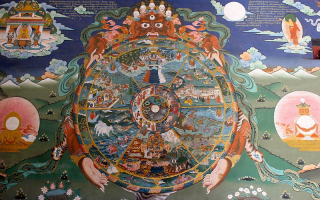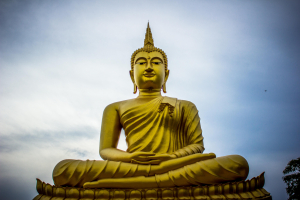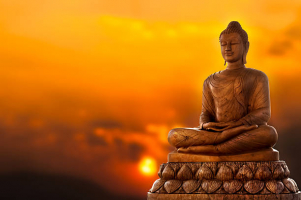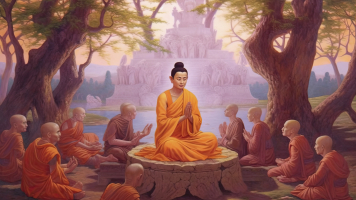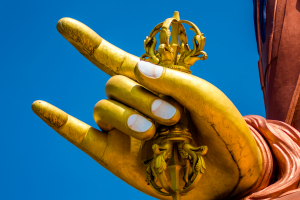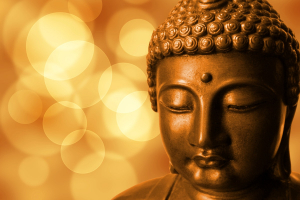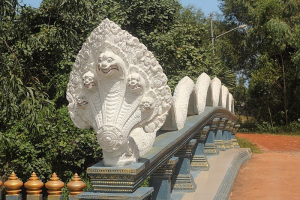Top 10 Common Misconceptions about Buddhism
Uncover the truth behind the most common misconceptions about Buddhism. Is it true that all Buddhists are vegetarian meditators? Is Buddhism a gloomy religion? ... read more...It is usual to come across contradictory information concerning Buddhism. So, without further ado, let's clear now.
-
Meditation is an essential aspect of the faith's teachings. The life stories of the Buddha and his enlightened teachings highlight the pivotal role of meditation in attaining wisdom and inner peace. Through quiet, clear, and concentrated meditation, the Buddha achieved awakening and liberated his mind.
In contemporary Western Buddhism, meditation has gained prominence as a fundamental practice, often taught to beginners. However, historical records show that traditional Buddhist meditation was primarily reserved for monastics, and not all Buddhists engaged in meditation until the 20th century. And as put by the scholar Erik Braun, even the relatively few Buddhists in history who found meditation to be essential “have not doubted that one can live a worthwhile and authentic Buddhist life without meditating.”
Interestingly, various schools of Buddhism emphasize alternative forms of practice beyond sitting meditation. Chanting, walking, visualizing deities, and creating ritual art are all embraced to achieve awakening. Tibetan Buddhism, for instance, values sitting meditation alongside prostrations, visualizations, and prayers.
Surprisingly, some popular modern schools of Buddhism eschew sitting meditation altogether. Nichiren Buddhism, based on the Lotus Sutra and originating in Japan during the 13th century, centers on chanting the mantra "Nam-myoho-renge-kyo" as its core practice.
In conclusion, while meditation remains a cornerstone of Buddhism, the diversity of practices within the faith showcases its flexibility and inclusivity. By exploring different paths, practitioners can find profound spiritual fulfillment.
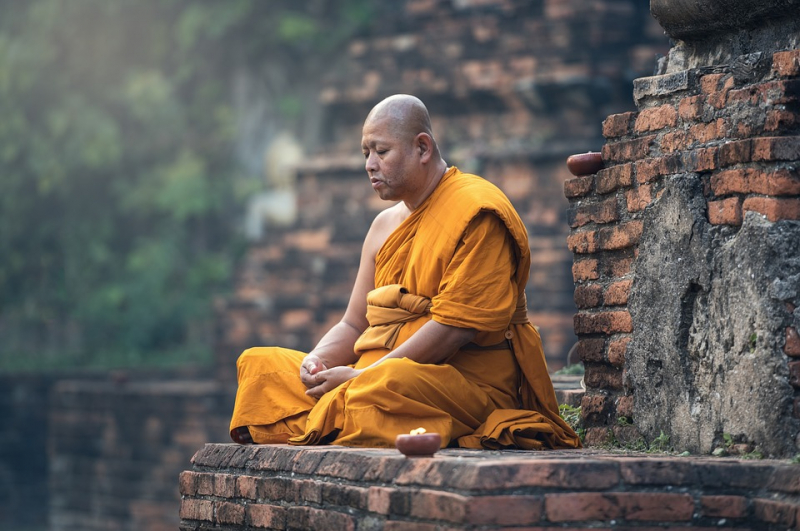
Sitting Meditate Monk - Photo on Max Pixel 
Walking meditation - Photo on Needpix.com -
The concept of anatta, meaning "not-self" in Pali (anatman in Sanskrit), has led to various interpretations in Buddhism. It is often translated as "no self," leading to the misconception that Buddhists deny the existence of a self altogether.
However, the Buddha himself did not directly answer whether a self exists or not. He cautioned against getting entangled in such philosophical debates, as they can lead to confusion and distract from the path to liberation from suffering.
In general, many Buddhists understand not-self to mean that there is no fixed, inherent, unchanging self. Instead, our perception of self-arises from ever-changing physical and mental processes, sensations, impressions, and reactions. This attachment to a fixed identity causes suffering and dissatisfaction. For instance, fearing aging is a result of clinging to a specific sense of self, like being young, healthy, or immortal, rather than accepting it as a natural part of life.
The Buddha emphasized the importance of recognizing not-self as a means to investigate the roots of suffering and find liberation from it. By realizing the impermanence and interconnectedness of all things, we learn to let go of attachments, such as the beauty of youth, and ultimately find inner peace.
In summary, the notion of not-self in Buddhism encourages us to let go of fixed identities, embrace impermanence, and discover the path to freedom from suffering.

Photo on Rawpixel 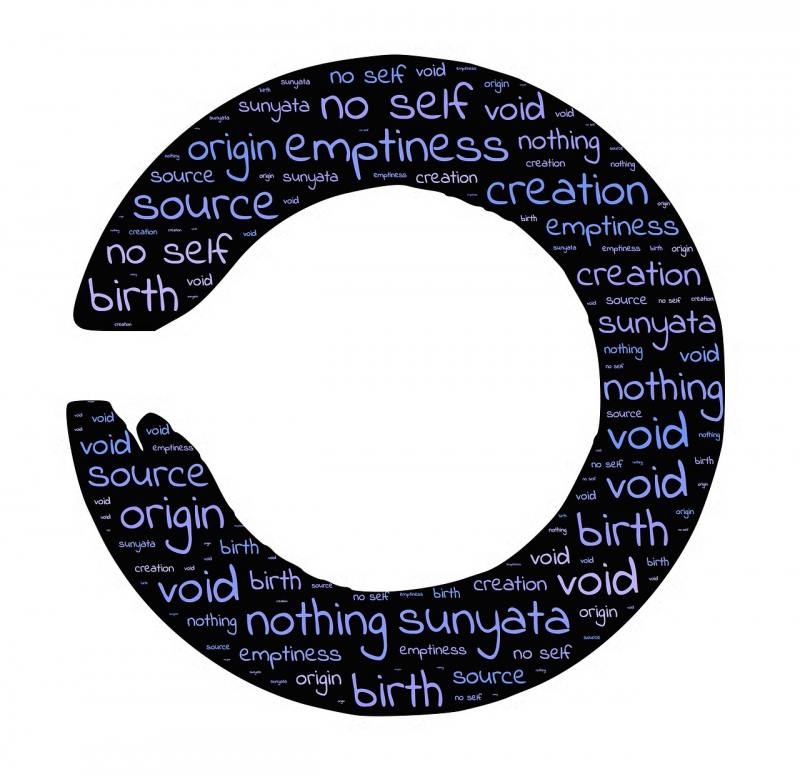
Photo on Needpix.com -
No, the Dalai Lama is not the leader of Buddhism as a whole. He holds a prominent position within Tibetan Buddhism, specifically in the Gelug order, and is considered by his followers to embody the bodhisattva of compassion, Avalokiteshvara. While the Dalai Lama is revered as a spiritual head by Tibetan Buddhists and has millions of followers worldwide, he is not a leader in other Buddhist traditions, such as Thai or Zen Buddhism.
Buddhism is a diverse family of religions with numerous doctrinal variations, and there is no single leader that governs all Buddhist schools, similar to how Christianity does not have a single leader for the entire religion.
The Dalai Lama's fame primarily stems from his role as the leader of the Tibetan community in exile. After the Chinese invasion of Tibet in the 1950s, he escaped to India and established the Tibetan government in exile in Dharamsala. He has become an international spokesperson for Tibet's plight, advocating for the preservation of Tibetan culture and religion. In recognition of his efforts, the Dalai Lama was awarded the Nobel Peace Prize in 1989.
While other Buddhist teachers have gained some level of celebrity for their spiritual and political achievements, none have garnered the same level of attention and global sympathy as the Dalai Lama. His impact on raising awareness of Tibetan Buddhism and the challenges faced by the Tibetan people remains unparalleled.
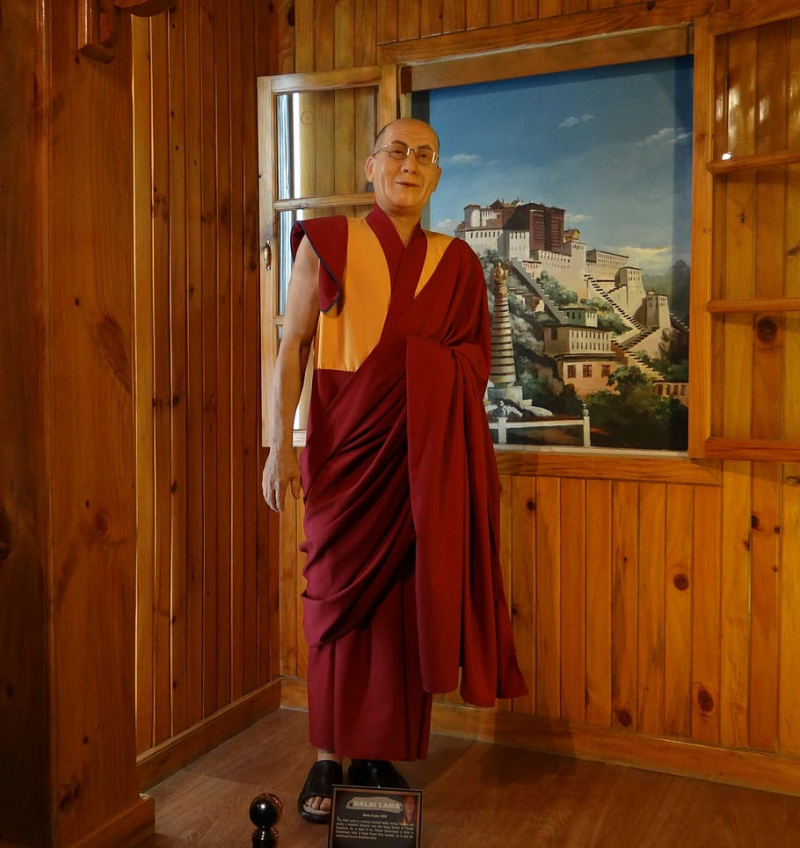
Photo on Wallpaper Flare 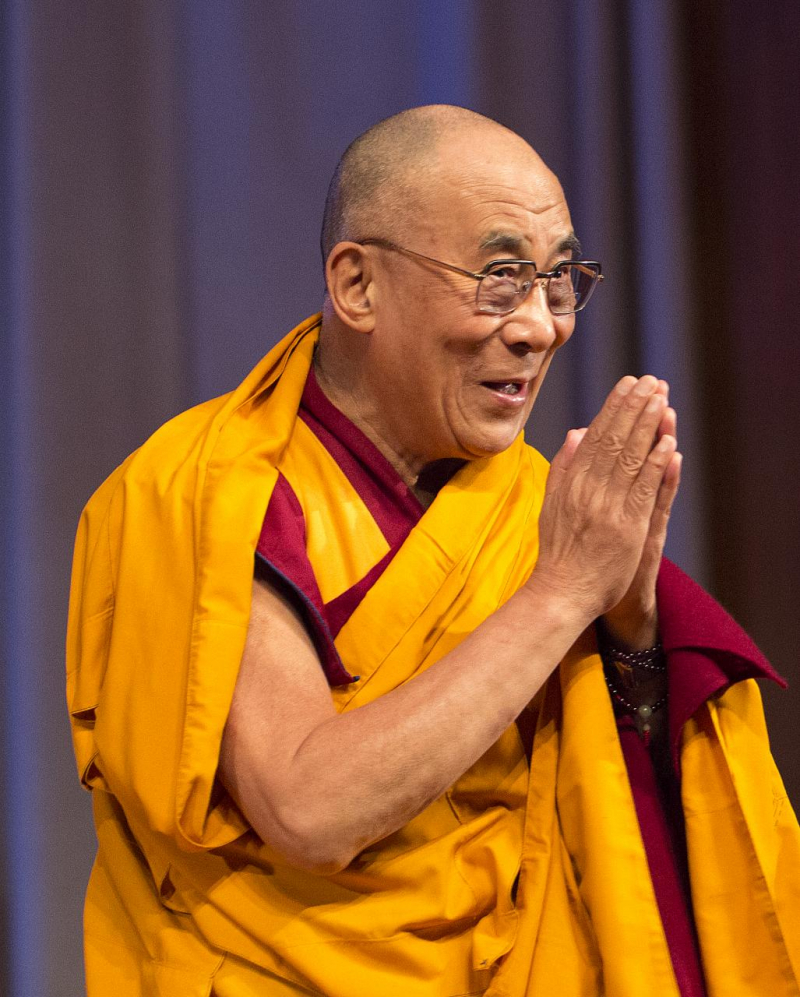
Photo on Wikimedia Commons -
The answer is no, as the definition of "being religious" varies for each individual. Some may have reservations due to negative experiences with their previous religion, associating it with blind adherence to dogmas and traditions.
Buddhism, however, encourages a different approach. The Buddha himself urged his followers to personally test his teachings. In the Kalama Sutta, he advised people not to believe blindly in traditions or dogmas but to put his teachings into practice and observe their effects on their own lives. Moreover, he recommended comparing personal findings with the experiences of wise and honorable individuals.
By following this path, practitioners arrive at their own authentic understanding of Buddhist teachings. Whether one labels it as religion, spirituality, or philosophy is less important than the practical application of these principles in daily life. The Buddha emphasized that one's actions and the consequences of those actions hold greater significance than mere labels.

Photo on Pxfuel 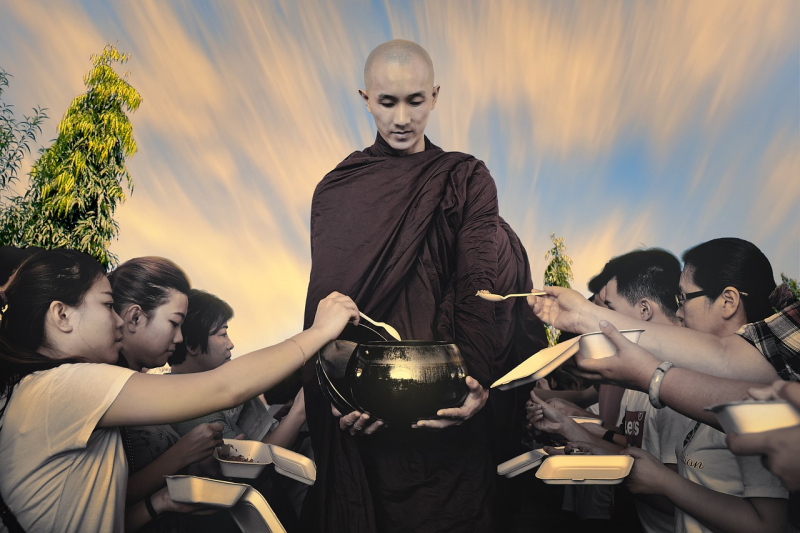
Photo on Pixabay -
If you find yourself frustrated by the continuous flow of thoughts during meditation, rest assured that Buddhist meditation is not about halting thoughts or emotions.
Attempting to stop thinking deliberately is as futile as trying to prevent digestion. Thoughts are a natural function of the mind, and the challenge arises when we become entangled in them and react impulsively. Embracing this truth can be challenging, especially for beginners in meditation, who often encounter the "monkey mind" - a restless and wandering mind.
Although thoughts cannot be stopped, the focus and stability of the mind can be strengthened. In Buddhist contemplative practices, novices are advised to observe thoughts as they arise and pass away. The Buddha himself suggested being vigilant about thoughts that trigger greed, hatred, and delusion, recognizing them as unskillful and not dwelling on them. Over time, such thoughts lose their power and fade away. Conversely, cultivating skillful thoughts that foster generosity, compassion, and wisdom is encouraged.
Zen and Tibetan Buddhist teachings liken the mind to a mirror, where reflections do not leave any lasting mark. Similarly, thoughts and emotions are compared to clouds passing by in the vast sky of the mind. The key is to let thoughts and emotions arise and subside without identifying with them as part of the self. Eventually, practitioners come to see thoughts as transient sensations, much like feeling the warmth of the sun or a cool breeze.
In summary, the essence of meditation is not to stop thinking but to develop mindfulness and non-attachment to thoughts and emotions. As we observe them without grasping or rejecting, we gain insight and cultivate a sense of inner peace and clarity.

Photo on Hippopx 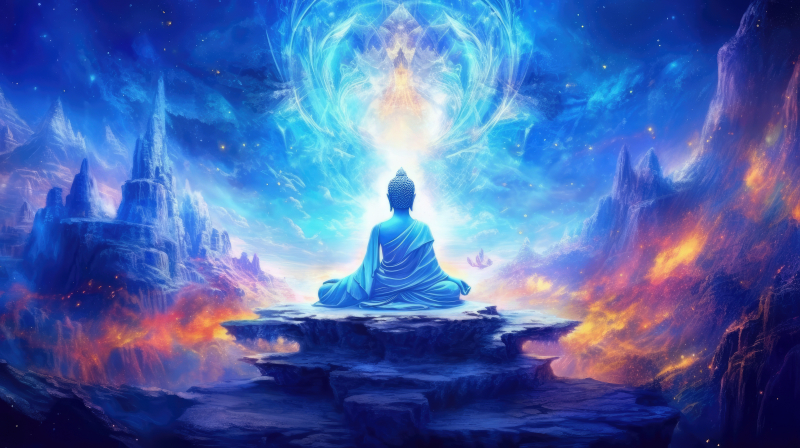
Photo on Wikimedia Commons -
While it's widely believed that all Buddhists are vegetarians due to the principle of abstaining from taking life, the reality is more nuanced. While vegetarianism is encouraged in most Buddhist schools, it is not an absolute requirement.
Early scriptures indicate that the Buddha's monastic disciples were not strict vegetarians, primarily for practical reasons. Allowed only one meal a day before noon and reliant on alms, they consumed whatever food was offered, including meat. However, there were specific guidelines in place. Monks and nuns were prohibited from eating animals slaughtered expressly for them and certain types of meat such as bear, dog, elephant, horse, leopard, snake, and tiger. Laypeople, on the other hand, likely consumed meat out of practicality.
As Buddhism spread to regions like China, Japan, and beyond, monastic communities became less dependent on begging for food and started purchasing it. Consequently, vegetarian meals became more prevalent as slaughtering animals for many people became a concern. Laypeople were not compelled to follow a vegetarian diet, but many chose to adopt it voluntarily. Notably, early Mahayana sutras, dating back to the 1st millennium CE, strongly emphasized vegetarianism. For instance, the Lankavatara Sutra referred to eating meat as "the root of great suffering."
In regions like Tibet, where arable land and a challenging climate made a year-round vegetarian diet unfeasible, meat consumption was deemed beneficial for health based on Tibetan medicine. Despite this, a small number of Tibetan lamas over the centuries chose to avoid meat and encouraged their students to do the same.
Today, Buddhist dietary practices differ among various traditions. In Theravada and Tibetan Buddhism, vegetarianism is generally considered a personal choice, with adherents following diverse diets, including meat consumption, pescatarianism, and veganism. On the other hand, vegetarianism is more commonly observed in Mahayana schools, particularly in the Chinese, Korean, and Vietnamese traditions and among Western practitioners.

Vegetarian meal at Buddhist temple - Photo on Wikimedia Commons 
Japanese temple vegetarian dinner - Photo on Wikimedia Commons -
The belief that "all is one" is commonly associated with Buddhism, but this perception is not entirely accurate. The Dalai Lama's confusion over the joke "Make me one with everything" highlights the misconception. While some consider Buddhism as a form of monism, which suggests that everything originates from a single source, a closer examination of Buddhist teachings reveals a different perspective.
Buddhist doctrine emphasizes dependent origination or dependent co-arising, stating that all phenomena, including beings, are interconnected in a vast web of dependencies. However, this interconnectedness does not imply a complete merging of all things into a singular entity. Individuals remain responsible for their actions, and their existence is conditioned by other factors.
Mahayana Buddhism introduces the concept of the "two truths" within the doctrine of Madhyamaka, the "middle way." According to this view, existence is both relative and absolute. While phenomena exhibit distinctiveness in everyday reality, they are indistinguishable in absolute reality. Both relative and absolute truths coexist and hold equal validity.
Buddhist practice indeed encourages letting go of self-centered views and embracing empathy and compassion for others. Individuals may be encouraged to "be one with" others, but this does not negate their individuality. Instead, it promotes a sense of interconnectedness among individuals without erasing their unique identities.
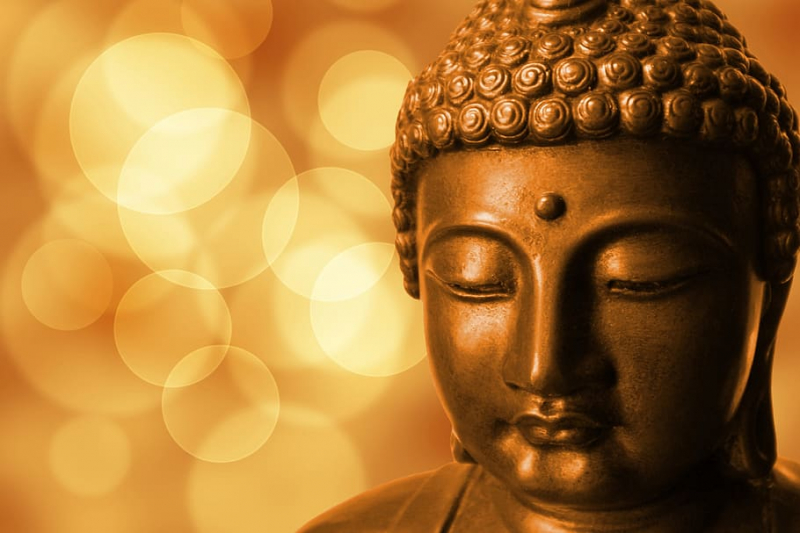
Photo on Wallpaper Flare 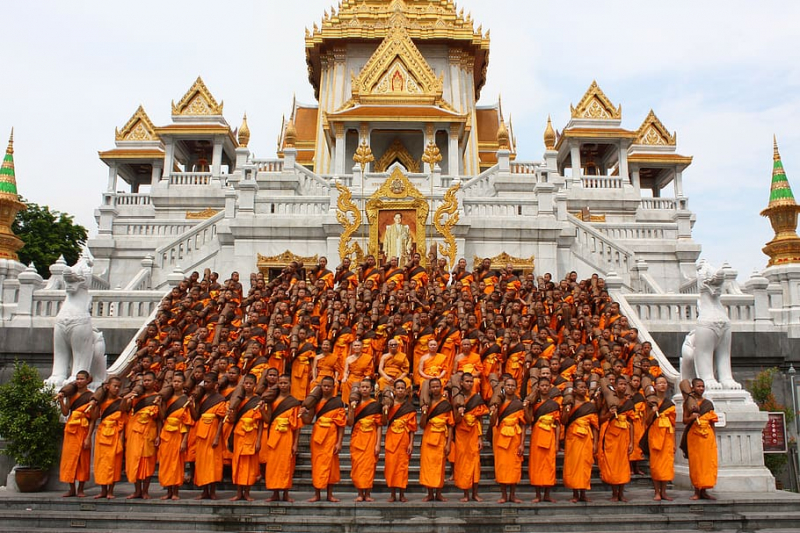
Photo on Wallpaper Flare -
In the 1960s, meditation gained popularity in the West as a "drugless high," but it quickly became associated with relaxation. Studies highlighting meditation's stress-reducing benefits made it a favored practice for finding tranquility amid modern chaos.
Though not all publications explicitly referenced Buddhist meditation, Western culture easily linked it to serenity and imagined enlightenment as a blissful escape from stress—a perfect stress relief solution. While tranquility is indeed one aspect of the seven factors of enlightenment in Buddhism, the practice is much more profound.
Buddhist meditation is not solely about stress relief but primarily focused on cultivating wisdom and compassion. It aims to transform perceptions of self and reality, offering more than temporary escapism. The practice involves identifying the sources of stress and learning to let go, while directing the mind towards more skillful thoughts.
By training the mind to be clear and focused, meditation fosters insight into oneself, life, and the surrounding reality. The Buddha taught his disciples meditation to develop these qualities.
Mindfulness meditation, in particular, has gained attention for reducing stress and enhancing focus and productivity. Although its health benefits are well-documented, some Buddhist teachers express concern that secular mindfulness techniques divorced from Buddhist principles of wisdom and compassion may reinforce selfish tendencies instead of dispelling them.
Ultimately, meditation for relaxation and meditation for enlightenment serve different purposes, highlighting the profound depth of Buddhist mind training.
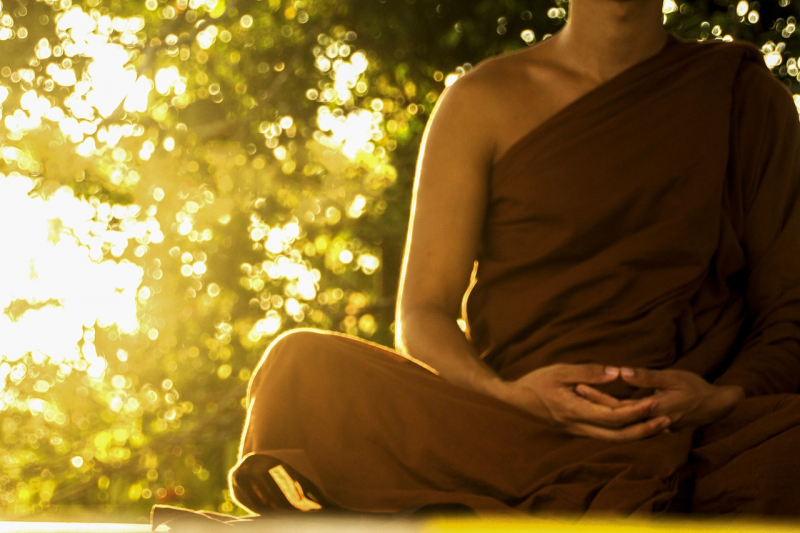
Photo on Needpix.com 
Photo on Pxfuel -
In Buddhist practice, the idea of switching off unpleasant emotions is a misconception. Emotions are an integral part of being human, but they need not cause excessive suffering.
Pleasant or unpleasant emotions usually arise as reactions to various stimuli. Trying to cling to or suppress emotions are forms of craving that only reinforce them. The Buddha's teachings emphasize that unawakened individuals are driven by desire and aversion, becoming entangled in their emotions like puppets on strings.
While we cannot switch off emotions entirely, we can lessen their grip and regain control. Mindfulness is a fundamental aspect of this process. When an emotion arises, simply acknowledge it without judgment, even labeling it if necessary. Recognizing how emotions trigger habitual reactions allows us to accept them, enabling their natural arising and passing away. With practice, we can break free from old patterns and respond to circumstances more skillfully.
Emotions are sometimes seen as obstacles to enlightenment, but certain teachings, particularly from the Mahayana tradition, view mindfully working with emotions as a skillful means towards awakening. Rather than suppressing or clinging to emotions, we can explore what they reveal about our inner state. For instance, if anger arises due to a bruised ego, the root problem lies in the ego, not the anger or its trigger. Such insights are valuable lessons in our personal growth.
Challenging emotions, like profound grief, may linger, tempting us to distract or numb ourselves. Yet, embracing these emotions with courage or seeking support from others can initiate the healing process.
In Buddhist practice, the key is not to eliminate emotions but to develop a mindful relationship with them, leading to greater emotional freedom and wisdom on the path to enlightenment.
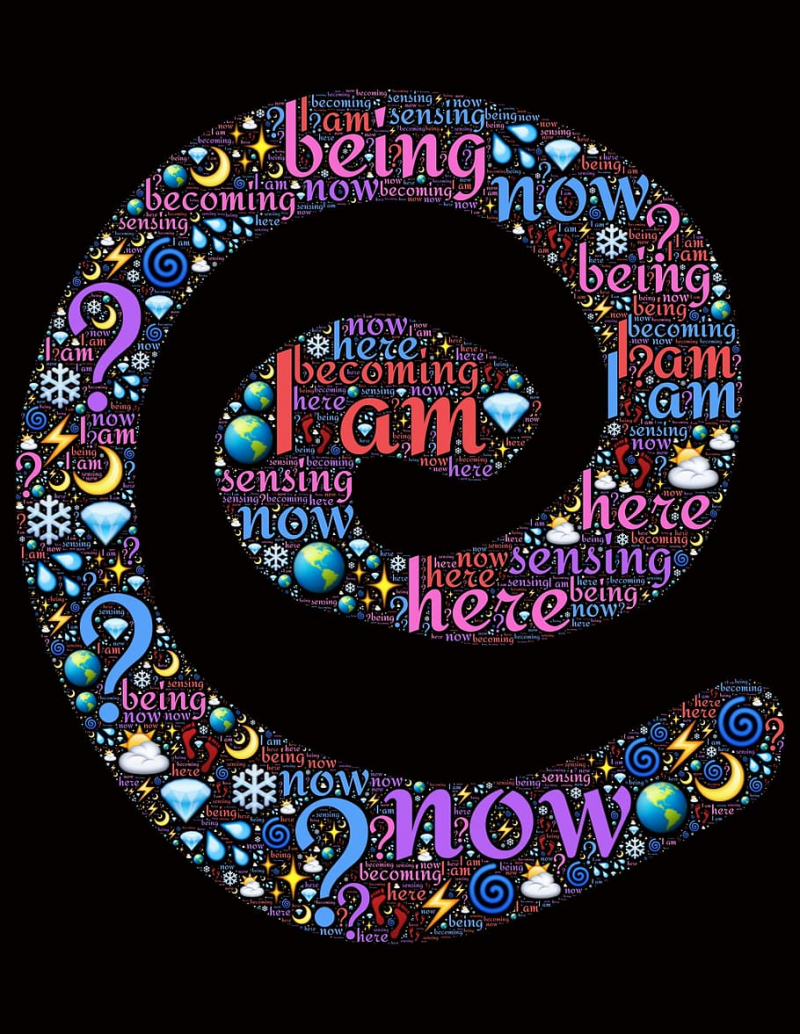
Photo on Wallpaper Flare 
Photo on IconScout -
Discover the true essence of enlightenment, often misconceived as an instant state of bliss. Let's unravel the meaning of "awakening" and understand how it unfolds gradually through life's experiences, revealing bits of wisdom along the way.
Many people misconstrue enlightenment as a sudden transformation from ignorance to eternal happiness. However, the Sanskrit term for "enlightenment" translates to "awakening," signifying a gradual process rather than an abrupt revelation. The concept of enlightenment is a journey of discovery, where individuals gain wisdom and serenity over time through a series of enlightening experiences, leading to a deeper understanding of life's mysteries. Even the most enlightened teachers lead ordinary lives, facing every day challenges just like anyone else.
Contrary to popular belief, enlightenment is not an instant switch of bliss but a gradual unfolding of inner understanding. It often happens subtly, barely perceptible in the beginning, and evolves over an extended period. This gradual process allows individuals to absorb and integrate profound insights, gradually transforming their perspectives and consciousness.
Enlightenment is often marked by a series of "opening" experiences. Each moment of awakening reveals a fraction of the bigger picture, providing a glimpse of profound truths. These enlightening moments serve as stepping stones on the path to greater self-realization and wisdom.
Enlightened teachers, despite their profound wisdom, continue to live ordinary lives. They encounter worldly challenges like everyone else—riding buses, experiencing illnesses, and dealing with everyday setbacks. The key difference lies in how they perceive and respond to these situations, drawing on their awakened consciousness to navigate life's complexities with serenity and understanding.
Enlightenment is not an instant transformation but a gradual process of awakening. Like a flower blooming over time, individuals unfold their inner wisdom through a series of enlightening experiences, each contributing to their overall understanding of life. Even the most enlightened individuals remain grounded in the real world, embracing both the highs and lows with equanimity.
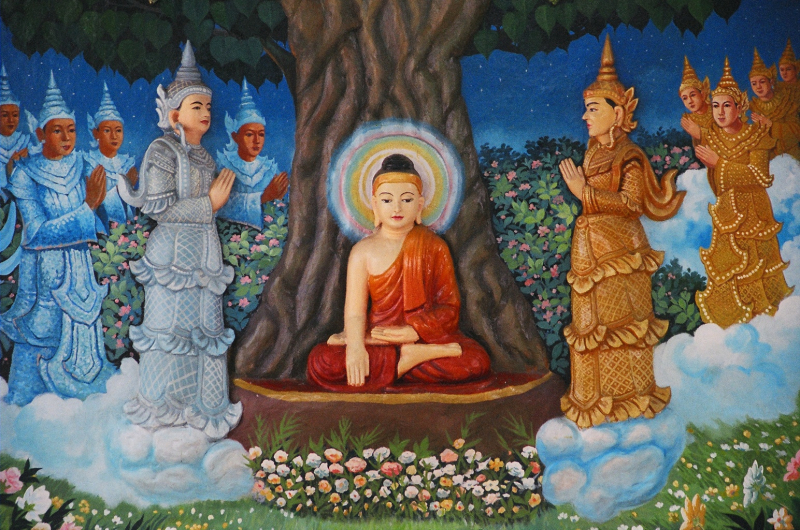
Photo on Wikimedia Commons 
Photo on Tiny Buddha



















